Reducing Your Carbon Footprint... One Piece of Plastic at a Time

Written by: Brielle Murch
Plastics are made from natural materials such as cellulose, coal, natural gas, salt and crude oil through a polymerisation or polycondensation process. Although plastics are made from ingredients found throughout the Earth, this final product is not aligned with respecting the resources Earth has provided and created.
Through the production of plastic, climate change is exacerbated due to the consumption of fossil fuels which release greenhouse gases into the atmosphere.
The production of plastic takes its toll on the environment further as the harvesting machinery required to collect the raw materials ruin the balance of the land’s structure.
Another destructive factor about plastic is that most of it utilized by humanity is in fact single-use, meaning that after only one time, people dispose of it. There is no efficient way of disposing of plastic, as it is not biodegradable.
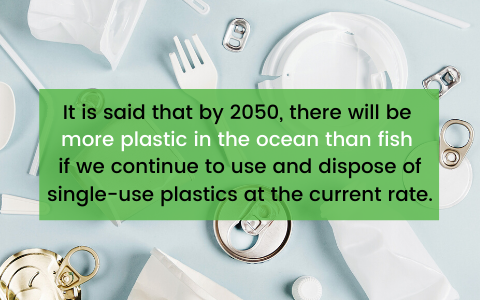
Plastic will last thousands of years, leeching petro-chemicals into the land and water, before it degrades into a material then named “mirco-plastics”, which are very small pieces of plastic that pollute the environment. They are any type of plastic fragment that is less than 5 mm in length according to the U.S. National Oceanic and Atmospheric Administration (NOAA).
Microplastics enter natural ecosystems from a variety of sources, including cosmetics, clothing, and industrial processes. The size of them makes them dangerous and harmful because they end up within the food chain of humans as well as aquatic and land animals.
The good news is, we can eliminate our own usage of single-use plastic for the most part with beautiful swaps in our everyday products.
Here are 5 simple ways to drastically reduce your consumption of plastic waste!
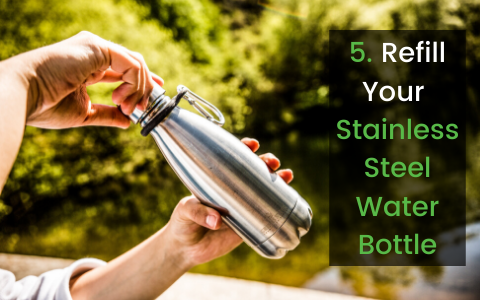
Plastic water bottles are not only terrible for your health, as they leak hormone-disrupting chemicals such as BPA into your water... They're also dreadful for the Earth!
U.S. landfills are overflowing with more than 2 million tons of discarded water bottles. It takes up to 1,000 years for every single water bottle to decompose. Instead of purchasing plastic water bottles weekly, you can purchase one stainless steel bottle and refill it for a lifetime!
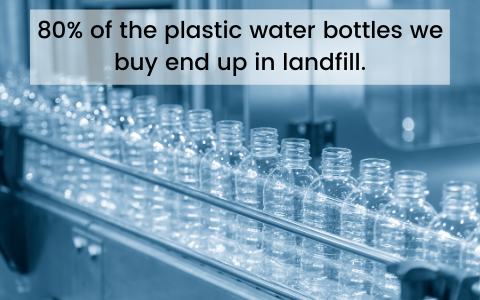
Stainless steel is a strong material that is durable and sustainable. It doesn’t leach chemicals into your drinking water, or the land if disposed of.
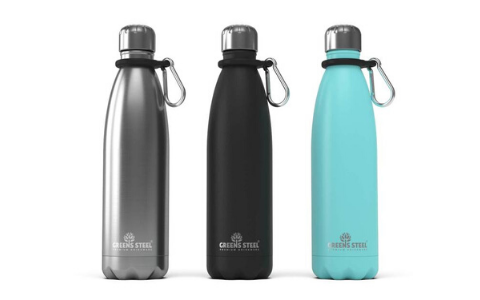
My Greens Steel Stainless Steel Water Bottle comes with me everywhere. By refilling it with filtered water to take along on my adventures, it's sustainable for the planet (and my pocket too)!
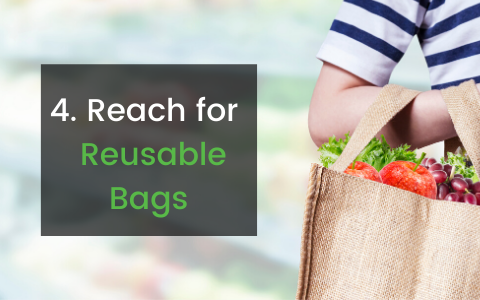
Plastic grocery shopping bags are not even easily recyclable. If they are thrown into a normal recycling bin, it can jam the machinery at the recycling facility. On top of that, birds often mistake shredded plastic bags for food, filling their stomachs with toxic debris. For hungry sea turtles, it's nearly impossible to distinguish between jellyfish and floating plastic shopping bags.
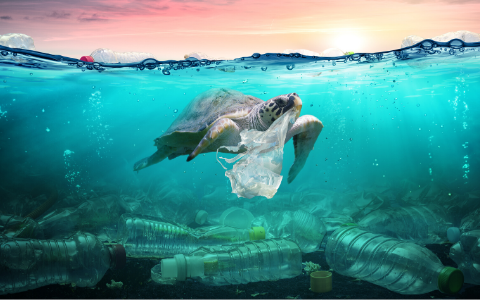
Fish eat thousands of tons of plastic a year, transferring it up the food chain to bigger fish and marine mammals. Americans use 100 billion plastic bags a year, which require 12 million barrels of oil to manufacture. Rather than buy new bags every grocery trip, you can collect 5-10 reusable grocery bags and keep them in your car for when you go shopping!
Some reusable bags are still made of plastic materials, so if you can, also search to consume more eco-friendly material reusable bags, like big cotton tote bags that are spacious and can be easily washed if they get a little dirty.
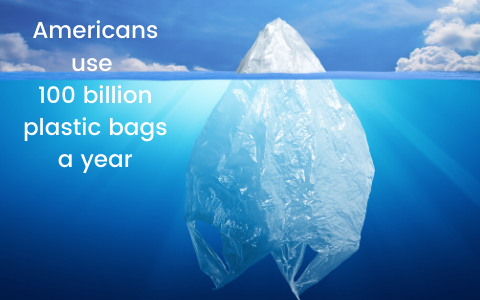
I take organic cotton string produce bags to the store to separate greens and specific veggies. Some stores even give their customers 10 cents off for each bag of their total, which one can also choose to donate to charities.
To get into the habit of remembering your reusable bags when you dash into the store, it’s useful at first to put a sticky note on your car’s dashboard so you always have a friendly reminder there to take them in with you! Then return the bags to your car right away after unloading, so you'll always have them handy.
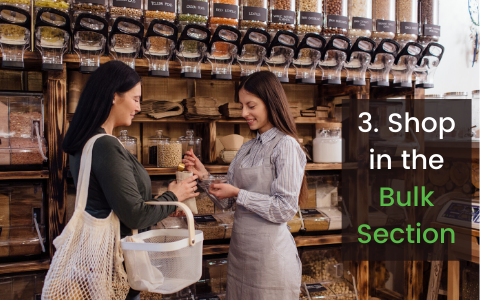
Responding to increasing demand, many healthy living stores now have a bulk dry goods section, where shoppers can buy certain foods by the weight rather than in individual packages. Not only can you choose your own amount at a time, saving you money, many stores also allow you to bring your own mason jar or cotton bag to refill items with.
You can refill on items such as grains, beans, flours, nutritional yeast, candies, nuts, dried fruit and much more! Many stores also have a refillable coffee bean station that you can bring your own jar to.
Look in your area for Zero-Waste mini stores that specialize in offering household items in bulk such as liquid soap, shampoo, detergent, superfood powders, oils and other daily products.
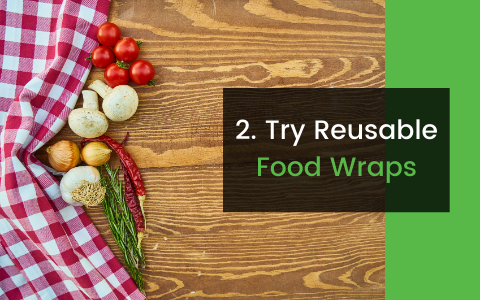
Wrapping plastic wrap around food before we put it in the fridge is happily a thing in the past for me and many others who have discovered the bliss of reusable food wraps!
I use reusable food wraps made of tree resin and other natural materials. They're thick, square pads that are a tad sticky that efficiently wrap around food that needs to be put away, like half a watermelon or avocado. A lot of reusable food wraps are made of beeswax, but for people who choose to refrain from the consumption of animal products there are also ones made from tree resin instead.
Reusable food wraps are easy to wash with soap and cold water. You can also use stretchy reusable silicone food wraps that act as a lid over any container you want to store food in, and are significantly better for the environment than traditional plastic wraps.
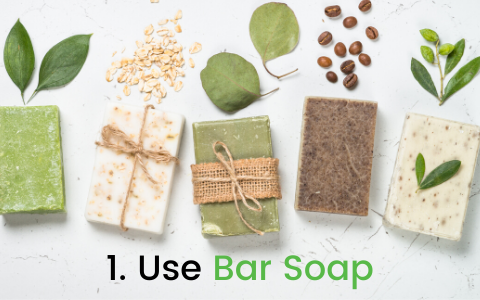
This one is super simple, you just purchase bars rather than liquids for your shampoo, conditioner, body soap and dish soap! Most natural stores sell body soap bars that are loose, without any packaging. Shampoo and Conditioner bars lather up perfectly and also clean your hair really well! They last a long time too and don’t require a giant plastic bottle such as liquid soap does.
You can also find large blocks of dish soap that you can rub your kitchen sponge on, rather than buying big plastic bottles of liquid dish soap. As a general rule, soaps in bar and block form are also more natural, with their focus on including non-toxic ingredients, when compared to most liquid cleaning soaps.
Day by day, do the best you can to make little shifts in your daily habits. Even one plastic bag not consumed makes a difference. These are options that are not only simple and require only investing in a new product once or for a long time, they are also simultaneously better for your health, the environment and also most of them are more efficient for your pocket long-term! I hope you enjoy shifting your life, and the life of future generations by shifting the votes you make with your dollar. As consumers, we can change the system and the world. Infinite Love & Light~ May all beings be happy and free!
Brielle Murch | Everything Earth Tribe



